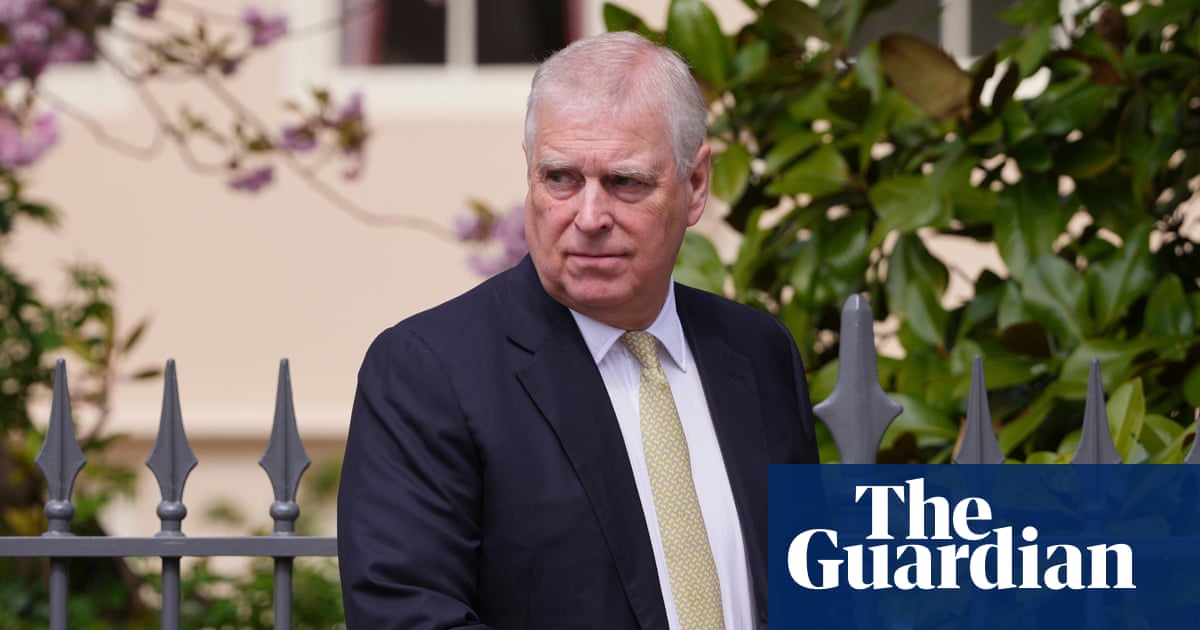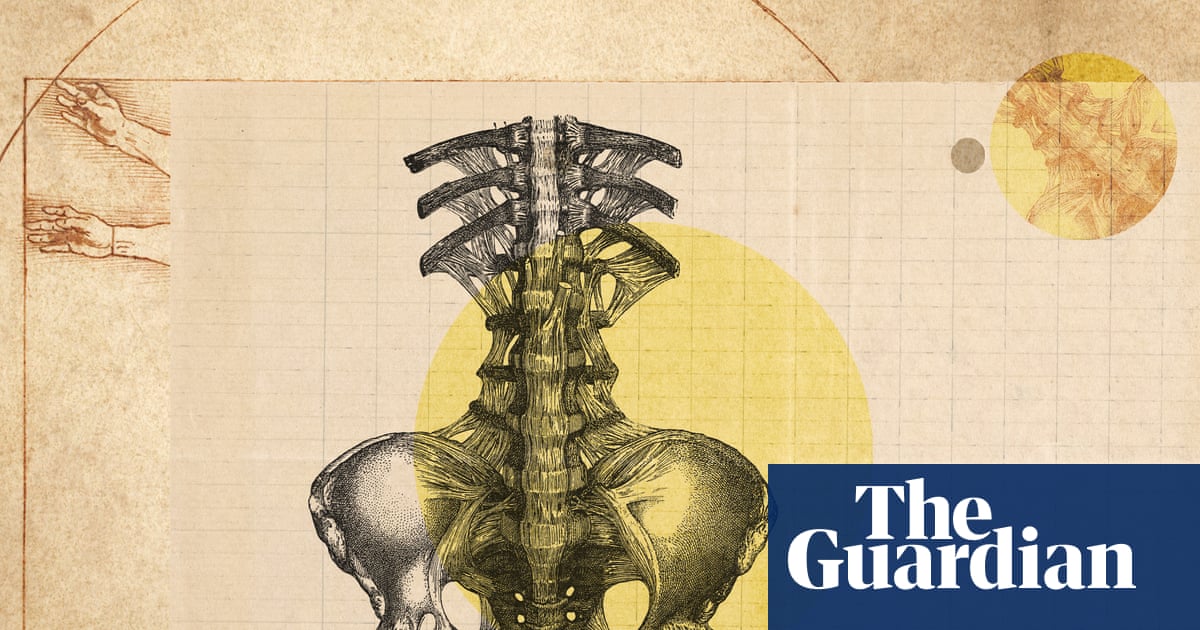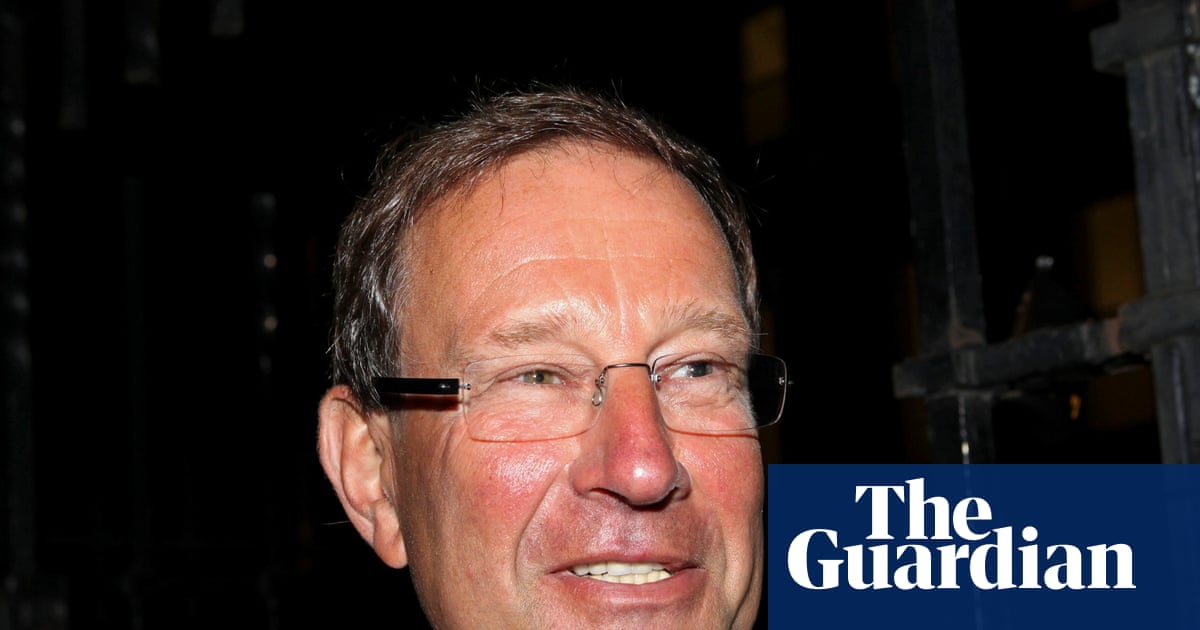Sam Fender is the winner of the 2025 Mercury prize, for his chart-topping album People Watching.
Announcing the award, Sian Eleri, BBC radio DJ and one of the judges on the judging panel, said the album was characterised by “cohesion, character and ambition. It felt like a classic album, one that will take pride of place in record collections for years to come.”
Fender, 31, grew up in North Shields, close to where the award ceremony was held this year, in Newcastle.
He broke through quickly with his debut album Hypersonic Missiles in 2019, which topped the UK album chart, then consolidated its epic yet poignant sound on second album Seventeen Going Under (2021), and again with People Watching, released in February.
It has taken him to even greater commercial heights, producing two Top 10 singles and prompting a series of stadium concerts.
Accepting the award to the sound of Newcastle United chants in the crowd, Fender said: “We did not expect this at all … I want to say thank you, because I never did, to the person the song People Watching is about: Annie Orwin, who’s up there.”
Fender has previously described Orwin, an actor, as “like a surrogate mother” to him, and the lyrics of the song People Watching reflect on his visits to see her in the care home where she eventually died in 2023. He performed the song at the ceremony.
This year’s Mercury prize shortlist featured a number of commercially successful albums alongside somewhat lesser-known names.
People Watching, Wolf Alice’s The Clearing and Pulp’s comeback album More all topped the UK album chart, while CMAT’s Euro-Country, FKA twigs’ Eusexua, Fontaines DC’s Romance and PinkPantheress’s Fancy That all reached the Top 3. Bookmakers had CMAT as the favourite, followed by Fontaines DC and Pulp.
Also nominated were Scottish singer-songwriter Jacob Alon, rapper Pa Salieu, jazz-funk artist Emma-Jean Thackray, and Welsh jazz pianist Joe Webb.
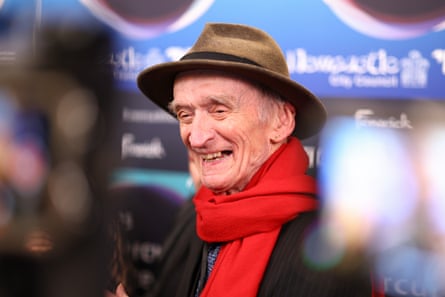
The prize also had its oldest ever nominee: English folk singer Martin Carthy, 84, recognised for his album Transform Me Then Into a Fish.
Carthy’s career stretches back to the early 1960s London, where he influenced Bob Dylan, teaching him the standard Scarborough Fair. He later made recordings with his wife, Norma Waterson, and their daughter Eliza Carthy followed them into folk music, earning two Mercury prize nominations of her own in 1998 and 2003.
Martin and Eliza performed a version of Scarborough Fair together, with sitar player Sheema Mukherjee, at the ceremony. Alon, Fender, FKA twigs, Pulp, Salieu, Thackray, Webb and Wolf Alice each also performed a song live.
CMAT was also in attendance, but did not perform due to recent treatment to two wisdom teeth. “I was thinking about making jewellery from them,” she told BBC 6 Music. “I want to make the other nominees kiss my teeth for good luck, but not tell them it’s my good luck.”
Wolf Alice became the first act to be nominated for each of their first four albums. Both they and Pulp have one win from four nominations.
In 2024, the Mercury prize seemed to be in a somewhat parlous state, after it failed to secure an event sponsor and had to make do with a scaled-back awards show without live performances.
But it has returned strongly in 2025, relocating to Newcastle and using the city’s Utilita Arena as a venue. It also hosted an array of “Mercury fringe” events in the days prior to the award ceremony, with artist showcases, workshops and panel discussions.
Guardian analysis of recent winners found that between 2014 and 2023, every winner hailed from London, with Leeds band English Teacher finally bringing a win from outside the capital in 2024.
The move to Newcastle, which helps to counter a generally London-centric music industry, has therefore been praised. Ian Murray, minister for creative industries, media and arts, said the “symbolic step” was “hugely welcome … for too long other regions have had to play second fiddle to London, despite having world-class creative output in their own right”.
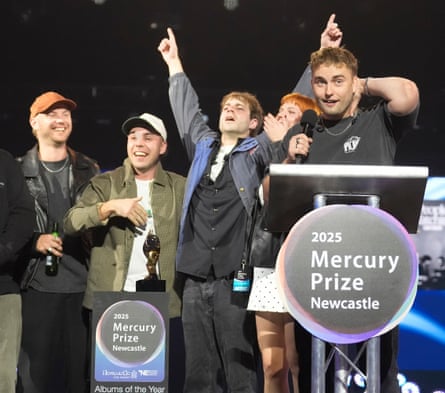
The Mercury prize is voted for by a team of music industry figures: jazz musician and broadcaster Jamie Cullum; radio DJs Sian Eleri, Jamz Supernova, Mistajam, and Danielle Perry; journalists Phil Alexander, Will Hodgkinson and Sophie Williams; music consultant Lea Stonhill; and the chair of the judges, Jeff Smith, head of music at BBC Radio 2 and Radio 6 Music.
The prize, founded in 1992, is described as a “celebration of the 12 albums of the year, recognising artistic achievement across a range of contemporary music genres”. The most nominated artists are Radiohead and Arctic Monkeys, each with five, while PJ Harvey is the only artist to have won it twice.
Fender wins £25,000 prize money. The judges’ statement added that People Watching is “melody-rich and expansive, marrying heartland rock with the realities of everyday life and the importance of community. These are thoughtful songs with broad appeal, as cinematic as they are intimate.”

 3 months ago
112
3 months ago
112









